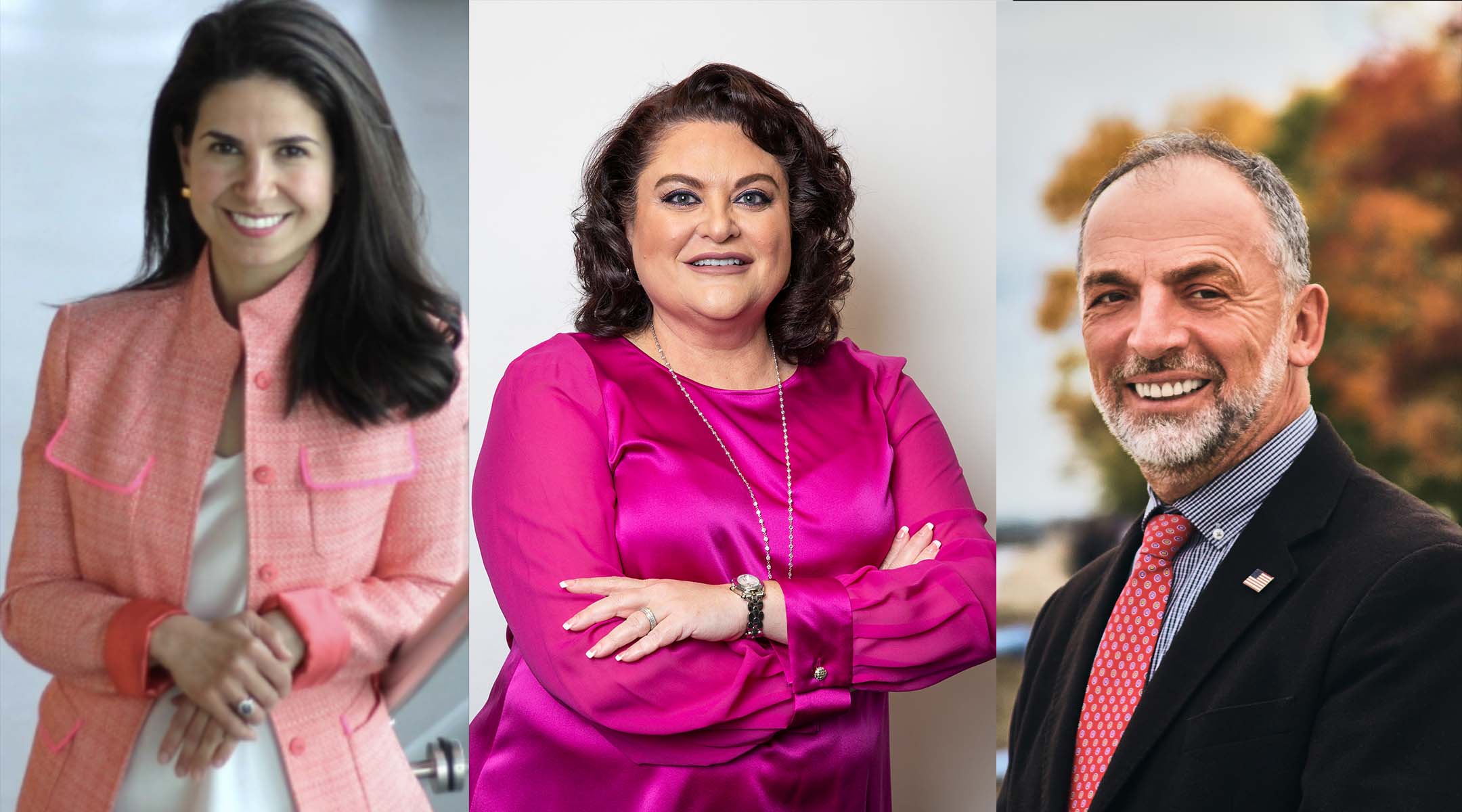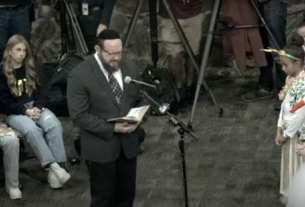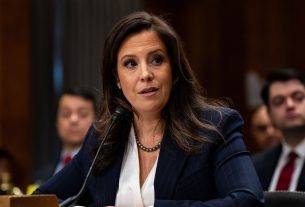WASHINGTON (JTA) — It’s a familiar pitch from American Jewish politicians: Our ancestors fled repression to enjoy the freedoms America offers, and your vote for me will help preserve them.
The difference for these three Jewish congressional longshots is that they are Republicans, and the flight from the oppression they describe happened not generations ago, but in their lifetimes.
Karina Lipsman in northern Virginia, Yuri Dashevsky in Brooklyn and Angela Grabovsky in Indianapolis are all candidates for the U.S. House of Representatives who were born in the former Soviet Union.
None is likely to enter Congress, but their candidacies are significant because their stories illustrate a conventional wisdom about the subset of American Jewry that was born in the Soviet Union: They are the flip side of the majority of American Jews who overwhelmingly favor liberal policies and Democratic politicians.
Polling of Soviet-born American Jews is scant, but at least one poll in 2004 bears out the commonplace assumption that Russian-speaking Jews are more conservative, with a majority favoring Republican President George W. Bush that election year.
Not one of the Soviet-born candidates had heard of the other two, but their campaigns have one theme in common: Their experiences as Jewish youngsters in the Soviet Union, and their parents’ experiences, have led them to believe that Republican policies are the best way to beat back what they say is a threat of socialism here.
It’s the same emotional appeal the dozens of Jewish Democratic candidates who run each cycle frequently use to make their case, citing their families’ flight from Nazi-occupied Europe and Tsarist Russia, except in those cases, the perceived threat is coming from the right.
Consider Becca Balint, a Democrat running for Vermont’s single House seat who has made her father’s Holocaust trauma — and her trauma as the daughter of a survivor — central to her campaign.
Angela Grabovsky is running in Indiana’s 7th District. (Courtesy)
“Growing up gay, and the granddaughter of a man killed in the Holocaust, Becca developed early on a deep sense of empathy for people on the margins,” is the second sentence of Balint’s campaign bio.
It’s a message echoed, with an individualist slant, in the bio pages of the three Soviet-born candidates.
“As an immigrant from an oppressive regime, I don’t take the freedoms in this nation for granted,” Lipsman says on her bio page.
“In 1989 we had the chance to escape to America — thank God we did,” Grabovsky says on hers.
“I was born in 1960 in the city of Tashkent, Uzbekistan, Central Asia – then part of the dreaded Soviet Union,” Dashevksy says on a page titled “Let me tell you what brought me here.” “When the Nazis took over Ukraine in 1941, my parents’ families escaped to Tashkent. Being Jewish, they had little chance to survive.”
In interviews, the three candidates said their Soviet backgrounds made them wary of government overreach, which they identify with Democrats.
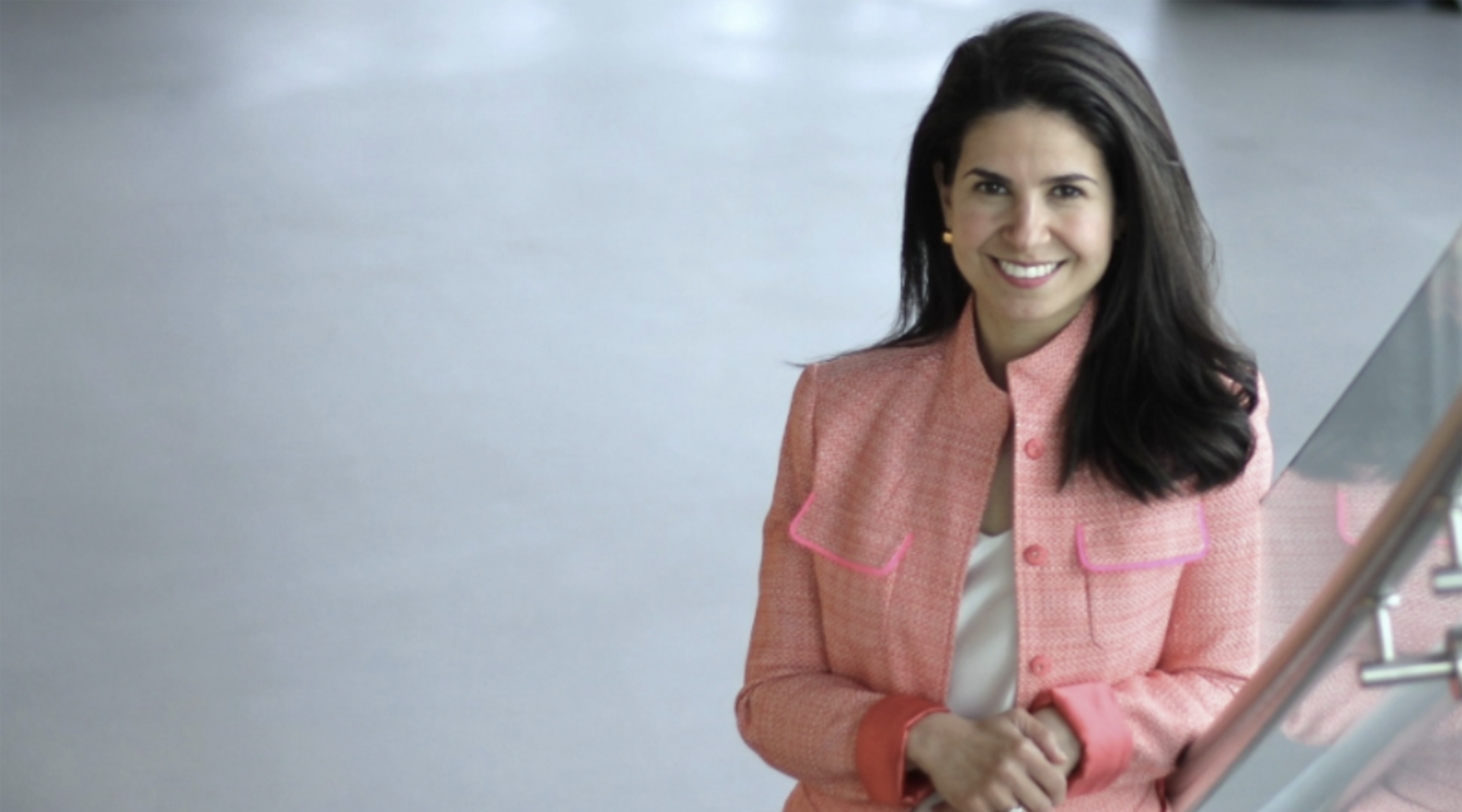
Karina Lipsman is running in Virginia’s 8th District. (Courtesy)
“The Jewish people here in the United States tend to lean more Democratic versus those who came from the Soviet Union because I think a lot of it was due to the oppression of being able to practice as a Jew in the Soviet Union,” Lipsman said. “That oppression, I think, is what makes a lot of people that come from the Soviet Union who are Jewish appreciate the freedoms and opportunities here in America and lean more towards the Republican side.”
Grabovksy and Dashevsky also said they were concerned about what they said was a censorship drive on social media platforms, which they said they associated with the left. Dashevsky pointed to restrictions on sharing vaccine skepticism on social media as a problem. (Restrictions by private companies about content on their platforms do not constitute censorship, which comes from the government. Meanwhile, Elon Musk, who acquired Twitter last week with a vow to permit almost all speech, encouraged users Monday to vote for Republicans.)
“When we start with [tech] censorship, this brings up the fear that we are going back to where we came from,” Grabovksy said. “I can compare it to when communication between my uncle who lived in the States and us, it was all censored, so any letters that he ever sent to us, they were redacted, every phone call that we made we had to call the KGB so they can have an interpreter there. And the same thing is happening now, this censorship by the big tech. There’s no transparency.”
The three are unlikely to enter Congress. All are running in districts that are deep blue and are vastly outmatched by their Democratic competitors in terms of fundraising. In Virginia’s 8th District, Lipsman faces incumbent Democrat Don Beyer, a car dealership magnate who has raised $2 million to her $271,000.
Grabovksy faces Andre Carson, who took over the seat in Indiana’s urban 7th District, which has a substantial Black population, after his grandmother’s tenure in it ended in 2008. Grabovksy lives in a suburb just outside the district and has raised $500,000 — including $300,000 of her own money. Carson has raised $750,000.
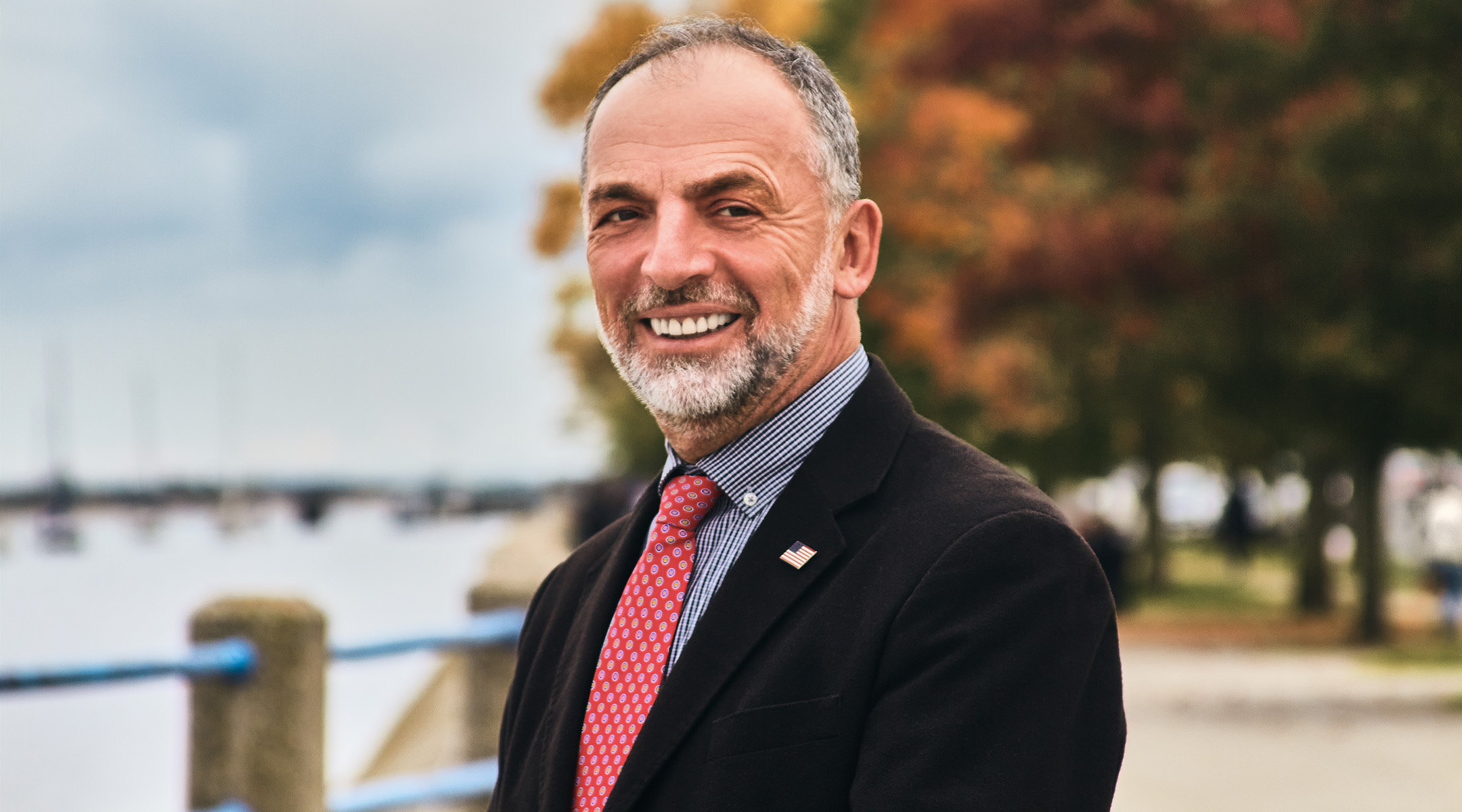
Yuri Dashevsky is running in New York’s 8th District. (Courtesy)
Dashevsky, facing Hakeem Jeffries in New York’s 8th District, has raised $20,000 to $6 million accumulated by Jeffries, the chairman of the House Democratic caucus.
They are running different campaigns, based on their districts. Grabovsky, 57, who with her husband runs a real estate business, is focusing on inflation, noting that gas prices are on average higher in the state. She has made herself unpopular with fellow immigrants from Ukraine by arguing that assistance to the country to fend off the Russian invasion should not be a priority. “For as long as children in the 7th District go to bed hungry, we shouldn’t be giving [Ukraine] money without any accountability,” she said.
Dashevsky, 62, is all-in for former President Donald Trump and his Make America Great Again slogan, wearing a red MAGA cap in his campaign literature. His number one issue is “law and order” in a city that has endured rising crime.
Lipsman, in her mid-30s (she won’t give an exact age) is running a campaign appealing to minorities in the Northern Virginia suburbs, which have become more diverse in recent decades, and tacks away from the extremes that much of the GOP has embraced.
“I’m not a rah-rah Republican,” she said. “So I think you know, that plays really well in this district, because I think the past candidates who have run before me on the Republican ticket, I feel like, you know, it’s just, they haven’t really understood the district.”
Lipsman leans hard into foreign policy, particularly what she says is the threat from China, which is unusual for a congressional race but may make sense in an area with a high proportion of refugees and veterans of the intelligence and defense communities. (Lipsman says she was employed in the defense sector.)
Like many Jewish immigrants from the former Soviet Union, none of the three have ties to any organized Jewish group, or to a synagogue. Grabovsky said she is frustrated by Indianapolis’s organized Jewish community, which leans liberal. Dashevksy said he enjoys hanging out with Orthodox Jews in his district but does not attend synagogue.
Yet each reaches into their Jewish past to explain why they are running now.
Grabovsky describes deciding after President Ronald Reagan visited Russia to corral her extended family to leave the country, longing for the freedoms Reagan described in a speech that were denied Jews in the Soviet Union.
“We left in ‘89,” she said in an interview. “I was 23 years old. By that time I was married with children — I have twins, they were 5 years old. I started early. I took my parents, my grandparents, my sister, basically yanked them out of the Soviet Union.”
Lipsman in an ad walks through the housing project where she grew up in Baltimore.
“I arrived in Baltimore City as a refugee from Soviet-Ukraine with my single mother and elderly grandparents,” she writes on her website. “We didn’t speak English, lived in low-income housing, and survived on food stamps. I remember my first day of public school, watching my fellow classmates recite the Pledge of Allegiance and not understanding a single word but deep down I knew it was something I wanted to be part of.”
Dashevsky, an interpreter and broadcaster, recalls his grandfather, an avid listener to the BBC and the Voice of America, walking him to school and then remaining for hours to catch up the Jews he knew with the news.
“His job in his sunset years was to listen at night and then tell everybody what he heard,” he said. “He was holding every button on every jacket on every Jew.”

